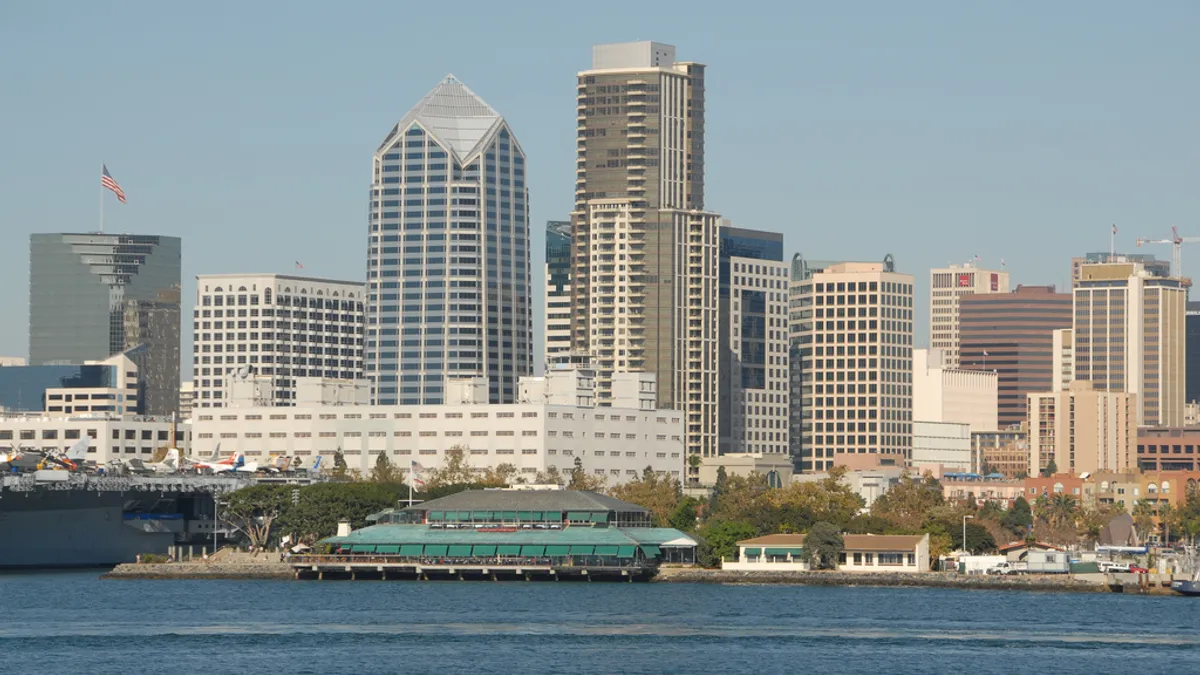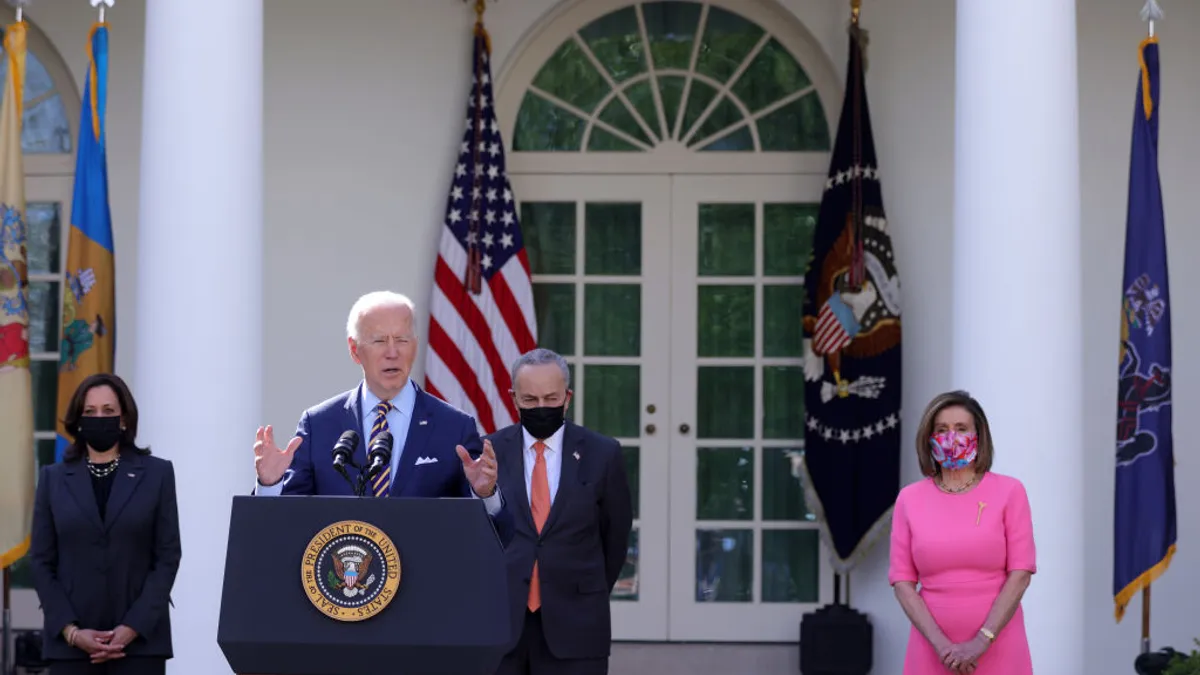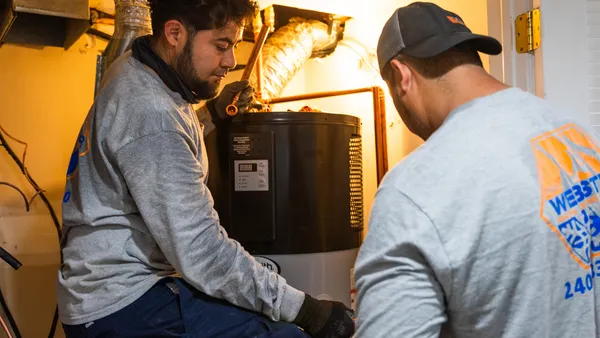Dive Brief:
-
San Diego developers will be subject to increased erosion-control enforcement efforts as the city, under pressure from the regional water-quality board, tries to prevent job site dirt and debris from making its way into local waterways, according to The San Diego Union-Tribune.
-
The city's tougher stance is part of a settlement agreement with the San Diego Regional Water Quality Control Board after the agency filed a civil suit alleging stormwater permit violations. In addition to issuing more fines and, potentially, stop-work orders for projects without proper erosion control, the city will pay $3.2 million for cleanup and other water-related environmental projects.
-
A multi-year investigation by the water board found that city officials were lax when it came to following through on developers' erosion-control violations, even though those breaches could have resulted in contaminated soil being washed into the water supply via the stormwater system.
Dive Insight:
The protection of natural resources and the development and construction processes are sometimes at odds with each other. For the most part, builders want to safeguard woodlands, water and other environmental features but are under time and money pressures to expedite the work no matter the surroundings.
During the 2016 presidential campaign, President Donald Trump promised the construction industry he would roll back regulations, particularly environmental ones, in an effort to shorten the permitting process. So far, he has been true to his word.
In February, Trump signed an executive order requesting that the Environmental Protection Agency (EPA) and the Army Corps of Engineers repeal or revise the Waters of the U.S. (WOTUS) rule, which has garnered pushback from developers and contractors since its inception. The rule sprung from EPA efforts in 2015 to clarify which waters were protected by the 1972 Clean Water Act. At the heart of protests, and legal challenges, is the claim that the rule gives the EPA jurisdiction over water features as small as ditches and streams.
At the end of June, the EPA, under the leadership of Trump appointee Scott Pruitt, proposed a rule that would overturn WOTUS and reinstate the previous regulation. It is seeking public comment through Aug. 28.
The Trump administration has also waived environmental protection requirements for the construction of a U.S.–Mexico border wall. Earlier this month, the Department of Homeland Security declared that a 2006 border-protection rule allowed them to proceed with construction activity and repair work on a 15-mile section of the border in San Diego without complying with standard environmental regulations.
The DHS could use the same strategy to build a 3-mile section of border wall through the Santa Ana National Wildlife Refuge along the Rio Grande River in South Texas.











